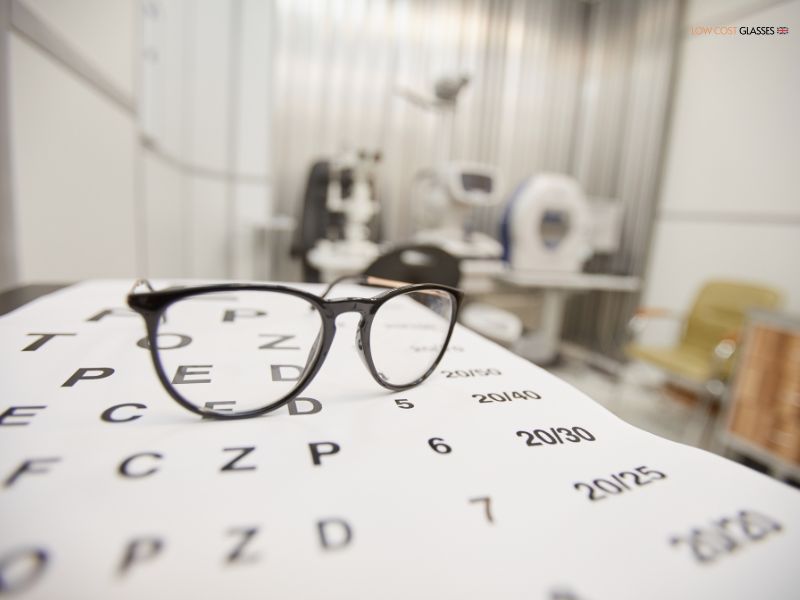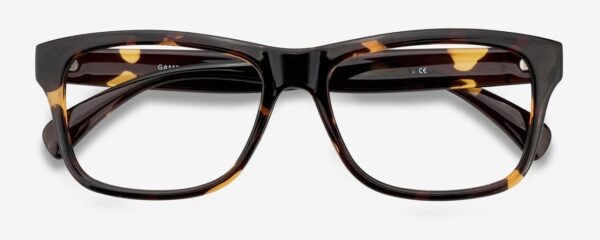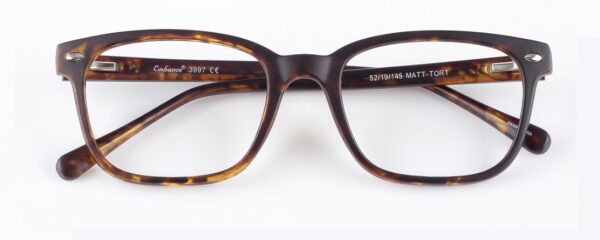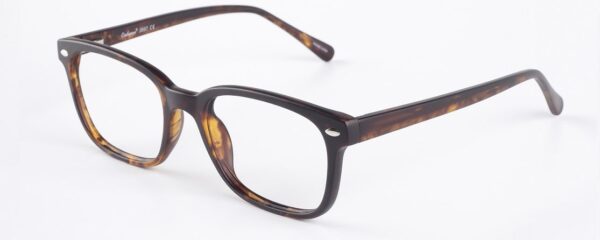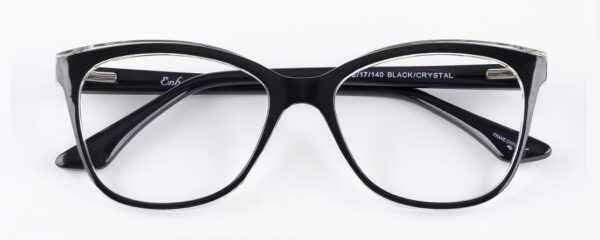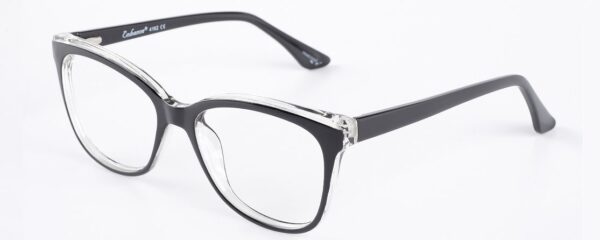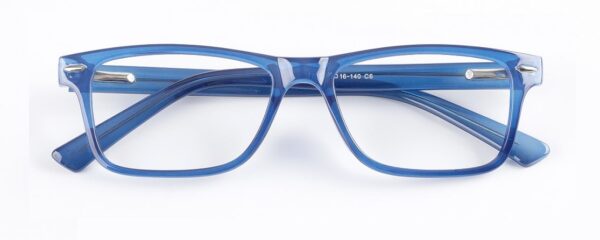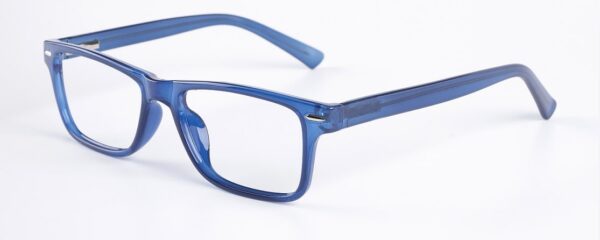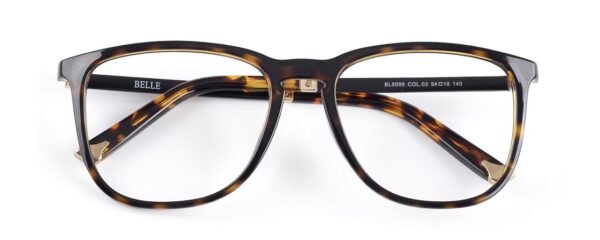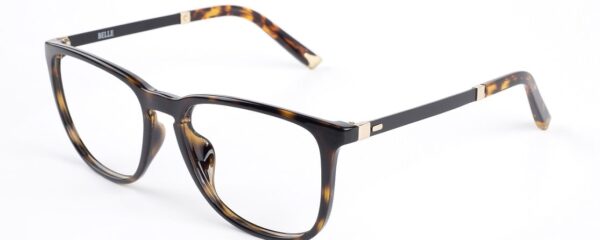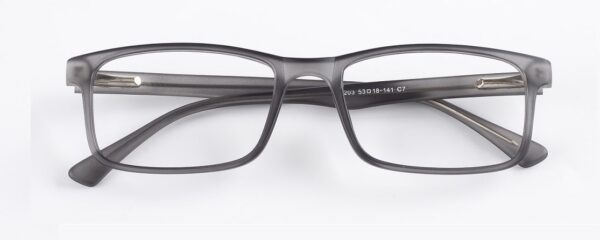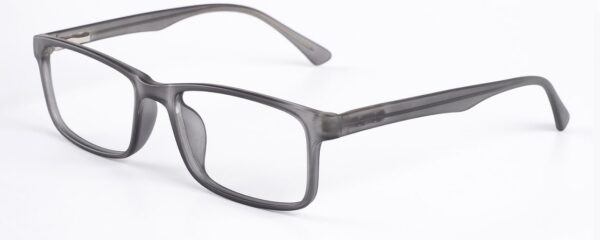If you are tired of the myths surrounding the impact of glasses on your vision, Today’s blog post will clear up your doubts and help you understand how prescription glasses affect your eyesight.
Benefits of Wearing Prescription Glasses
Prescription glasses can change the way you see the world. From correcting your visual defects to providing you with comfort and ease while performing day-to-day tasks, they provide a quick solution to your visual problems.
These are the top benefits of wearing prescription glasses:
-
Refractive Error Correction
The primary use of prescription glasses is to correct refractive errors: abnormalities in how light enters and forms images in your eyes. Refractive errors develop as a result of misshapen eye structures, like the lens and cornea. They can also develop due to the weakening of the eye muscles with age.
Common refractive errors include nearsightedness, farsightedness, presbyopia (difficulty seeing up close that develops as you age), and astigmatism (blurred vision at any distance due to an irregular corneal shape).
Prompt correction of refractive errors has a number of positive effects on your vision and appearance; they include:
- Clear vision and accurate depth perception.
- Increased comfort and guaranteed safety while carrying out daily tasks.
- A stylish pair of glasses may even boost your confidence.
Uncorrected refractive errors may cause symptoms like blurry vision, headaches, eye strain, double vision, and difficulty focusing on objects. Prescription glasses cannot reshape your eye structure; however, they correct these errors and symptoms by changing how light enters your eyes.
-
Prevention of Further Complications
Glasses help to prevent other eye defects that may arise from the workload refractive errors put on your eye muscles to bring objects into focus . Refractive errors are known to worsen as time goes by, wearing a pair of prescribed glasses helps to slow down this progression progress.
As you grow older and your vision gradually starts to change, it is important to keep your prescription for glasses up to date, as wearing an old prescription may have negative effects on your vision.
Side Effects of Wearing Wrong or Outdated Prescriptions
Wearing the wrong or old prescription can have a huge impact on how your eyes work.
- Wearing the wrong pair of glasses puts stress on your eyes, forcing them to do more work than necessary to bring an object into focus. Overworking your eyes may cause symptoms like eye strain, headaches, blurred vision, nausea, and dizziness.
- Incorrect prescriptions can also warp your sense of distance and depth, often making objects appear closer or farther than they actually are. This may make performing daily tasks difficult and increase your risk of accidents.
To prevent these negative effects, we advise that you keep track of how your vision progresses over time. Routine eye checks once every two years work just fine to detect gradual vision changes, allowing you to update your prescription accordingly.
A simple benefits vs. side effects comparison doesn’t completely capture the full range of effects that prescription glasses may have on your eyesight. Let’s help you see the bigger picture.
8 FAQs on the Impact of Prescription Glasses on Your Vision
-
Does not wearing glasses worsen my eyesight?
Answer: Similar to how they don’t improve your vision, prescription glasses don’t worsen it either. Not wearing your glasses robs you of their corrective abilities, leaving you with blurry vision, possible headaches, and eyestrain.
2. Will wearing prescription glasses weaken my vision and make me dependent on them?
Answer: No, wearing prescription glasses does not weaken your vision, nor will you become dependent on them. They simply give you quality vision while you have them on, with almost no long-term consequences.
3. How often should I have my eyes checked and my prescription updated?
Answer: We advise that you get your eyes checked every two years if you’re under 50 years of age. More frequent examinations—once every year—are better suited to people older than this age. Routine exams help you keep track of your vision progression and keep your prescriptions up to date.
4. Can I outgrow the need for glasses?
Answer: Yes, it is possible to outgrow the need for glasses. Children with mild refractive error may outgrow the need for glasses with proper treatment. However, the chances for adults are very slim, with your vision likely to worsen rather than get better.
5. How often should I wear my glasses?
Answer: How often you need to wear your glasses depends on the defect you have and the daily tasks you perform. Your eye doctor will definitely shed more light on this during your eye exam.
6. Why do my new glasses cause dizziness and nausea?
Answer: Your eyes may need a few days to weeks to adjust to your new glasses. This is called the adjustment period. During this period, you may have symptoms like dizziness, nausea, and distorted vision. Stronger prescriptions typically have longer adjustment periods.
7. Can the wrong prescription harm my vision permanently?
Answer: In adults, wearing the wrong prescription will cause eye strain, headaches, and discomfort but will not have any tangible long-term effects. However, wearing incorrect lenses may worsen refractive error in children as their vision is still in its formative years.
8. How do I clean my glasses?
Answer: Use a lint-free cloth, like a microfiber towel and a lens cleaner, to clean your glasses. Do not use regular clothes or paper towels, as they may scratch your lenses and disrupt your vision through them.
Other Methods to Correct or Improve Your Vision
Vision correction isn’t limited to just eyeglasses. There are two other options to get you as close to 20/20 vision as possible: Contact lenses and Laser eye surgery—a permanent vision fix.
Contact Lenses
Do you want the same corrective function as eyeglasses without having to carry the weight around? Then contact lenses are for you. However, just like eyeglasses, contacts do not permanently improve your vision.
If you would like to get contact lenses, you should visit your eye doctor, get an eye exam, and get fitted with the right contact lens prescription for you.
Laser Eye Surgery
Also known as LASIK, this is the only known way to change your vision and get rid of refractive errors permanently. This surgery completely reshapes your cornea, allowing it to receive light in a way that forms the perfect image and gives you an accurate perception of both distance and depth.
We advise you speak to your eye doctor to get more information about this procedure. It is important to note that this option is more expensive than other eye care options.
Get the Right Pair of Prescription Glasses for You
If you have been struggling with your vision, or you have any visually related symptoms, we advise that you take an eye exam and get an eye prescription. After getting a prescription, we’ll fit you with the perfect pair of glasses. Follow the guide below to order from our store:
- Go to lowcostglasses.co.uk and scroll through to pick out a frame you like. We understand that this can be a headache with the amount of choices available. Read through our frame guide for more information before making a choice.
- Click the “Try On” button to upload your picture and virtually try on the frame you’ve picked.
- Click the “Enter Prescription” button. Select the Lens type you need and fill in your prescription values and pupillary distance. Click “Continue”.
- Choose the lens perks you’d like your glasses to have and click “Add to Bag”
- Proceed to the checkout page, fill out your shipping address and billing details, and add a coupon code if you have one. Sit back, relax, and your personalized prescription glasses will be at your doorstep in a few days.
Buy One Get One Free. *Applies to frame cost only. Add second pair to your cart & discount will be displayed in cart.
Buy One Get One Free. *Applies to frame cost only. Add second pair to your cart & discount will be displayed in cart.
Buy One Get One Free. *Applies to frame cost only. Add second pair to your cart & discount will be displayed in cart.
Buy One Get One Free. *Applies to frame cost only. Add second pair to your cart & discount will be displayed in cart.
Buy One Get One Free. *Applies to frame cost only. Add second pair to your cart & discount will be displayed in cart.
Buy One Get One Free. *Applies to frame cost only. Add second pair to your cart & discount will be displayed in cart.
















